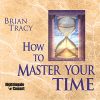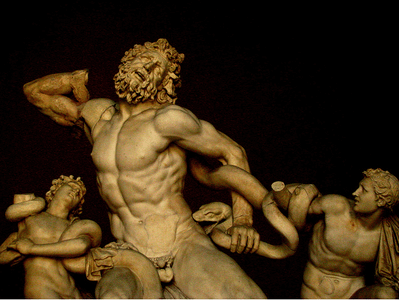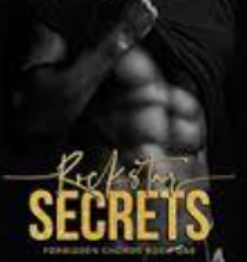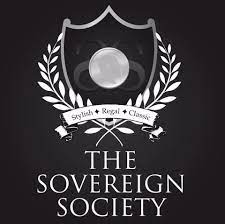TTC – Classical Mythology
$215.00 Original price was: $215.00.$49.40Current price is: $49.40.
Classical Mythology is an introduction to the primary characters and most important stories of classical Greek and Roman mythology. Among those you will study are the accounts of the creation of the world in Hesiod’s Theogony and Ovid’s Metamorphoses
File size: 8.32GB
(video,audio)
TTC – Classical Mythology
From Athena to Zeus, the characters and stories of classical mythology have been both unforgettable and profoundly influential. They have inspired and shaped everything from great art and literature, to our notions of sexuality and gender roles, to the themes of popular films and TV shows.Classical Mythology is an introduction to the primary characters and most important stories of classical Greek and Roman mythology. Among those you will study are the accounts of the creation of the world in Hesiod’s Theogony and Ovid’s Metamorphoses; the gods Zeus, Apollo, Demeter, Persephone, Hermes, Dionysos, and Aphrodite; the Greek Heroes, Theseus and Heracles (Hercules in the Roman version); and the most famous of all classical myths, the Trojan War.
How Should We Study Mythology?Professor Elizabeth Vandiver anchors her presentation in some basics. What is a myth? Which societies use myths? What are some of the problems inherent in studying classical mythology? She also discusses the most influential 19th- and 20th-century thinking about myth’s nature and function, including the psychological theories of Freud and Jung and the metaphysical approach of Joseph Campbell.You consider the relationship between mythology and culture. What are the implications of the myth of Demeter, Persephone, and Hades—as recounted in the Homeric Hymn to Demeter—for the Greek view of life and death, marriage and gender roles?What are the origins of classical mythology? Professor Vandiver examines similarities between the Theogony and Mesopotamian creation myths and considers the possible influences that the prehistoric Greek cultures, the Minoans and Mycenaeans, may have had on classical mythology.She also cautions you about the dangers of probing for distant origins. For example, there is little evidence, as many today believe, that a prehistoric “mother goddess” lies at the heart of mythology. This notion may simply be wishful thinking—a modern myth about ancient myth.In addition, Professor Vandiver explores the challenges we face in studying mythology—which is rooted in oral tradition and pre-literate society—through the literary works that recount them. How do we disentangle the original myth from its portrayal in Aeschylus’s The Oresteia, or Sophocles’s Oedipus the King? The more renowned the author, the more difficult this task becomes.
From the “Truth” of the Minotaur to Ovid’s Impact on ShakespeareProfessor Vandiver’s approach makes classical mythology fresh, absorbing, and often surprising. The many such topics you will consider include:
- The fact that most scholars see significant flaws in the work of Joseph Campbell, one of the best-known and most popular theorists of myth. They believe he makes a variety of assumptions—that myth has a spiritual meaning, or that certain narrative elements are the same in all cultures—that he fails to support, or that are highly questionable.
- The differences between the classical notion of the gods and our concepts of what gods, or God, should be. The ancient gods did not create the universe or earth, were not omniscient or omnipotent, were not consistently good, and did not even care much about humanity.
- The absence of a well-defined belief in the afterlife in Greek mythology and religion. In general, it was the opposite of what we believe: both less important and less pleasant than this life.
- The small kernel of truth, as represented in the “bull-leaping” fresco of Knossos, that may lie at the heart of the myth of the Minotaur, the half-man, half bull-like monster.
- Chronological inconsistencies in mythology. For example, in the story of Theseus, characters interact who in other stories did not even live at the same time.
- The way various mythological depictions of females—the Amazons, the myth of Medea, and such monsters as Medusa and Scyllare—present Greek males’ anxiety about women’s power, particularly their sexual power. This theme is embodied in Medea’s name, which means both “genitals” and “clever plans.”
- The Romans’ near wholesale “borrowing” of Greek mythology, in the context of their ambivalent view of Greek culture. They considered the Greeks to be better artists, poets, and rhetoricians than they were, but also saw them as decadent, “soft,” and treacherous.
- The extensive influence of Ovid’s Metamorphoses on the works of William Shakespeare. Because of this relationship, Ovid has had an incalculable effect on English literature.
In her final lecture, Professor Vandiver surveys aspects of the enormous influence that classical mythology has had, and still exerts, on Western Civilization. She offers her opinions as to why this is the case. She also demonstrates that the ancient gods, monsters, and heroes are very much alive and active today in contemporary beliefs in UFOs and visits from extraterrestrials and in popular entertainment such as Star Trek and films such as the Road Warrior and the Terminatorseries.
A Popular and Top-Award Winning Teacher“Professor Vandiver is an outstanding teacher with a clear mastery of her subject,” writes Teaching Company customer Barbara Brumbaugh of Auburn, Alabama. “She examines the subject in impressive depth, yet keeps the lectures interesting and accessible to non-specialists.”
Professor Vandiver is the 1998 recipient of the American Philological Association’s Excellence in Teaching Award, the most prestigious teaching award given to American classicists. She also teaches the related Teaching Company courses The Iliad of Homer, The Odyssey of Homer, and Virgil’s Aeneid.
| Average 30 minutes each
-
1Introduction
-
2What Is Myth?
-
3Why Is Myth?
-
4“First Was Chaos”
-
5The Reign of the Olympians
-
6Immortals and Mortals
-
7Demeter, Persephone, and the Conquest of Death
-
8 The Eleusinian Mysteries and the Afterlife
-
9Apollo and Artemis
-
10Hermes and Dionysos
-
11Laughter-Loving Aphrodite
-
12Culture, Prehistory, and the “Great Goddess”
-
13Humans, Heroes, and Half-Gods
-
14Theseus and the “Test-and-Quest” MythThis lecture focuses on the Athenian Theseus, who saved the youth of his city by penetrating the Labyrinth and killing the monstrous Minotaur who dwelt at its center. His story is an excellent type of those myths in which the hero must face and overcome dangers and difficulties in pursuit of a worthy goal.
-
15From Myth to History and Back Again
-
16The Greatest Hero of All
-
17The Trojan War
-
18The Terrible House of Atreus
-
19Blood Vengeance, Justice, and the Furies
-
20The Tragedies of King Oedipus
-
21Monstrous Females and Female Monsters
-
22Roman Founders, Roman Fables
-
23“Gods Are Useful”
-
24From Ovid to the Stars
Read more here!
Get TTC – Classical Mythology download immediately on AMZLibrary.com!
Be the first to review “TTC – Classical Mythology” Cancel reply
Related products
Other Courses
Other Courses
Other Courses
Other Courses
Other Courses






![Penina Petersen – Freezer Meals 1: $1.50 Dinners – Starter [eBook & Video Guides]](https://graspcourse.net/wp-content/uploads/2022/02/Penina-Petersen-–-Freezer-Meals-1-1.50-Dinners-–-Starter-eBook-Video-Guides-300x171.png)






Reviews
There are no reviews yet.